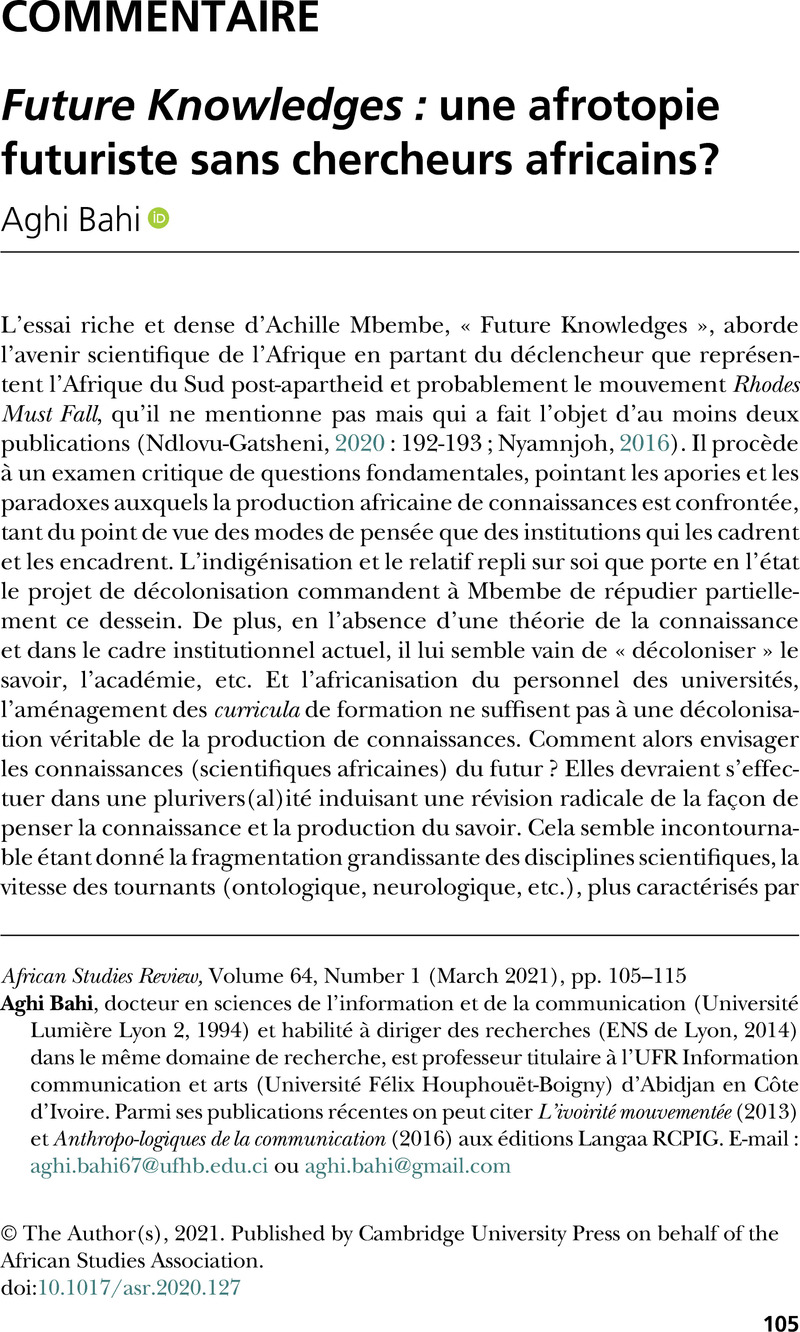Atenga, Thomas.
2019. «
L’Africanisme dans les sciences de l’information et de la communication : de l’utopie ( ?) d’une communauté épistémique ».
Histoire de la recherche contemporaine 8 (
2), consultable en ligne :
http://journals.openedition.org/hrc/3677, consulté le 15 mars 2020.
Google Scholar 